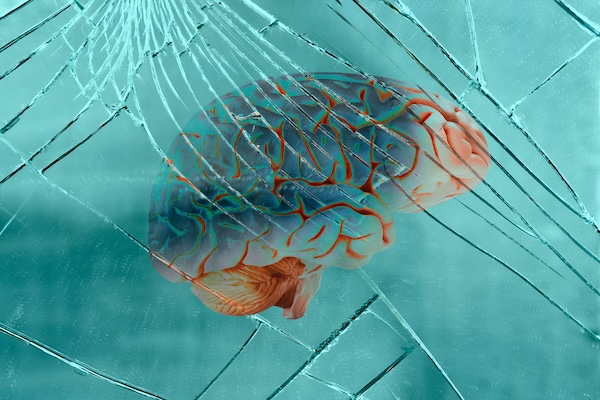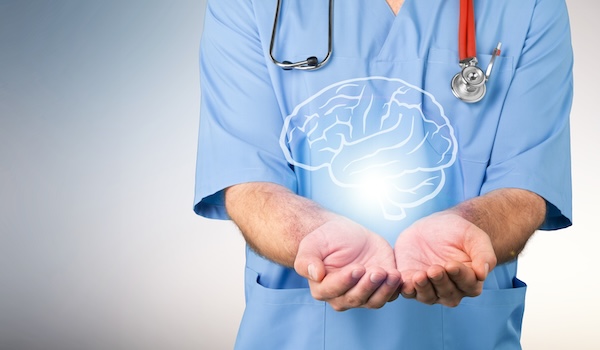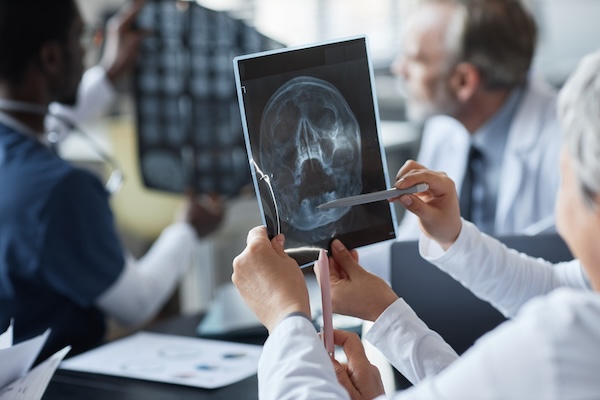Understanding Traumatic Brain Injuries and Their Impact
Traumatic brain injuries can have life-changing consequences, impacting not just the injured person but also their families and loved ones. If you suffer a traumatic brain injury in an Atlanta accident, understanding the traumatic brain injury steps post-Atlanta accident is critical. This detailed guide covers the essential steps you need to take, from immediate medical care to legal considerations, to help you navigate this challenging time.
Traumatic Brain Injury Steps Post Atlanta Accident: What You Need to Know
A traumatic brain injury (TBI) occurs when a sudden blow or jolt to the head disrupts normal brain function. Brain trauma can result from various incidents, including a car accident, fall accident, or sports injury, and may lead to serious long-term consequences.
TBIs are common in car accidents, fall accidents, sports injuries, and motor vehicle accidents. These events are leading causes of brain trauma and can result in a range of outcomes depending on the severity of the injury.
TBIs can be classified as mild, moderate, or severe based on the injury’s severity. Mild TBI, also known as mild traumatic brain injury, typically involves temporary symptoms but still requires careful monitoring, while severe TBI can lead to significant long-term disability and require intensive rehabilitation.
Recognizing Traumatic Brain Injuries
Understanding the symptoms of a traumatic brain injury is vital, whether you’re dealing with mild brain injuries, moderate injuries, or severe brain injuries. Symptoms may include:
- Loss of consciousness
- Confusion or disorientation
- Headaches
- Nausea or vomiting
- Difficulty concentrating
- Changes in mood or behavior
It is important to support the injured person and their family throughout the recovery process, as both the individual and their loved ones may face significant challenges.
Traumatic brain injuries diagnosed early can improve recovery outcomes and prevent further complications.
Causes of Traumatic Brain Injuries
Traumatic brain injuries can happen in a variety of ways, but some causes are more common than others. Car accidents and other motor vehicle accidents are a leading cause of traumatic brain injuries, often resulting from sudden impacts or jolts to the head. Sports injuries, especially those from contact sports like football, hockey, and soccer, also contribute significantly to the number of brain injuries each year. Fall accidents are another major source of traumatic brain injuries, particularly among older adults and young children.
In addition, violent incidents such as gunshot wounds or physical assaults can cause severe traumatic brain injuries. No matter the cause, any head injury should be taken seriously. Prompt medical attention is crucial to assess the extent of the injury and begin treatment, which can make a significant difference in recovery and long-term brain health.
Immediate Medical Attention: The First Step
After any suspected brain injury, seeking immediate medical attention is the first step in the traumatic brain injury steps post-Atlanta accident. Visit an emergency room or a spine center Atlanta location if you experience any TBI symptoms. A comprehensive evaluation using the Glasgow Coma Scale can help assess the severity of your injury.
Diagnostic Tools for Traumatic Brain Injury
Accurate diagnosis is key to developing an effective treatment plan. Medical professionals may use:
- Magnetic resonance imaging (MRI) for detailed brain scans
- Diffusion tensor imaging to assess white matter tracts
- Eye movement testing treatments, like balance tracking systems videonystagmography, to evaluate vestibular function and spatial awareness
- Cognitive testing to evaluate cognitive function
In many cases, multiple rounds of assessments may be necessary to accurately diagnose the extent of a traumatic brain injury.
These tools are essential for determining the full scope of your traumatic brain injury.
Early Treatment for Traumatic Brain Injury
Early intervention is critical for recovery. Treatments may include:
- Hyperbaric oxygen therapy, which involves breathing as much oxygen as possible in a pressurized environment. This therapy uses pure oxygen to promote growth factors and healing.
- Controlling swelling and preventing further damage
- Medication management to address symptoms
Increased oxygen levels and blood flow during treatment can promote healing because blood stimulates growth factors in the brain.
This stage is essential in the traumatic brain injury steps post-Atlanta accident.
Physical Therapy for Traumatic Brain Injury
Physical therapy is a key part of rehabilitation for traumatic brain injuries. It can help improve balance, coordination, and strength, addressing neurological function and physical symptoms to promote healing.
Occupational Therapy for Daily Living
Occupational therapy focuses on restoring daily living skills, helping injured people manage tasks like cooking, dressing, and personal care. This therapy is essential for those who want to regain independence and improve quality of life after a TBI.
Speech and Language Therapy for Communication
Speech language therapy helps restore speech and language skills after a TBI. It also addresses challenges with memory, cognitive function, and problem-solving, which are often impacted by traumatic brain injuries.
Cognitive Rehabilitation for Brain Function
Cognitive rehabilitation is a structured approach to improving cognitive function after a TBI. It includes exercises to enhance memory, attention, and problem-solving skills, helping patients regain mental clarity.
Vestibular Therapy for Balance and Dizziness
Vestibular therapy is a restorative measure for balance and dizziness, especially after a traumatic brain injury (TBI). TBIs often impact balance and spatial awareness. Vestibular therapy and vestibular treatment also treat vertigo and help restore spatial awareness by addressing issues like vertigo and gaze instability.
Advanced Treatments for Severe Brain Injuries
For severe brain injuries, advanced surgical interventions and treatments like hyperbaric oxygen therapy may be considered. These methods aim to promote healing and restore normal oxygen levels in the brain.
Traumatic Brain Injury in Children and Adolescents
Children and adolescents are especially vulnerable to traumatic brain injuries, which can have a profound impact on their developing brains and overall well-being. TBIs are a leading cause of death and disability among young people in the United States. Even mild traumatic brain injuries, such as concussions, can disrupt a child’s ability to concentrate in school, participate in sports, and maintain social relationships. Early diagnosis and intervention are essential for the best possible recovery.
Treatments like physical therapy, occupational therapy, and cognitive rehabilitation can help children regain lost skills and adapt to new challenges. Parents and caregivers should watch for symptoms such as headaches, dizziness, or trouble focusing, and seek medical attention if a head injury is suspected. With specialized care and support, many young people can fully recover and return to their normal activities.
Traumatic Brain Injuries in Older Adults
Older adults face unique risks and challenges when it comes to traumatic brain injuries. Falls are the leading cause of TBIs in this age group, and the likelihood of falling increases as people get older. Traumatic brain injuries in older adults can lead to serious complications, including increased risk of death, long-term disability, and cognitive decline. Severe brain injuries, such as subdural hematomas or intracranial hemorrhages, are more common in older adults and may require advanced medical or surgical care.
Managing other health conditions, like dementia or heart disease, can make recovery more complex. Preventive steps—such as regular exercise, managing chronic illnesses, and using assistive devices—can help reduce the risk of falls and brain injuries. Healthcare providers should tailor their approach to meet the specific needs of older adults, ensuring the best possible outcomes after a traumatic brain injury.
Structural Neurology and Comprehensive Brain Injury Rehabilitation
Structural neurology focuses on the central nervous system and injury recovery. Comprehensive brain injury rehabilitation addresses all aspects of recovery, from cognitive testing to advanced physical therapies. This approach often involves managing other medical conditions that may coexist with traumatic brain injury, ensuring holistic and long-term care.
Features of Effective Care for TBI Recovery
Recovering from a traumatic brain injury requires a comprehensive and coordinated approach. Effective care starts with early diagnosis and immediate post-concussion assessment, followed by prompt medical management to address symptoms and prevent further injury. Specialized care is essential, including cognitive rehabilitation, physical therapy, and occupational therapy, all tailored to the individual’s unique needs and goals.
Advanced diagnostic tools, such as magnetic resonance imaging (MRI) and diffusion tensor imaging (DTI), help guide treatment decisions and track progress. Family involvement is also important, with education and support for caregivers playing a key role in recovery. Finally, seamless coordination between healthcare providers and community resources ensures that every aspect of the patient’s journey is managed effectively. By focusing on these features, individuals with traumatic brain injuries can achieve the best possible recovery and regain independence.
Unmet Needs in Traumatic Brain Injury Care
While there have been significant advances in traumatic brain injury care, many victims still face unmet needs. Access to specialized care, such as cognitive rehabilitation and physical therapy, remains limited in rural and underserved communities. There is also a need for greater awareness and education about traumatic brain injuries among healthcare providers, patients, and families, to ensure early recognition and appropriate treatment. The lack of standardized protocols for diagnosis and management can lead to inconsistent care and outcomes.
Additionally, more research is needed to better understand the long-term effects of traumatic brain injuries and to develop new, effective treatments. Addressing these gaps is essential to improving the quality of care, supporting recovery, and reducing the overall impact of traumatic brain injuries on individuals and society.
Legal Steps: Filing a Traumatic Brain Injury Lawsuit
If your traumatic brain injury was caused by someone else’s negligence, you may be eligible to file a traumatic brain injury lawsuit. An experienced attorney can help you seek financial compensation for medical costs, lost wages, and other injuries sustained in the accident.
Financial Assistance and Compensation for TBI
Medical care and rehabilitation services for traumatic brain injuries can be expensive. Financial assistance and a successful lawsuit can provide compensation for:
- Medical care and treatment
- Lost wages
- Home modifications
- Ongoing rehabilitation services
Acting quickly is critical, as Georgia has statutes of limitations for personal injury claims.
Recovery Services and Long-Term Support
Recovery can take a few weeks to several years, depending on the severity of the traumatic brain injury. For some individuals, traumatic brain injury can become a chronic condition that requires long-term management and support. Recovery services include:
- Physical therapy
- Speech language therapy
- Cognitive rehabilitation
- Psychological counseling
- Occupational therapy
These restorative measures help patients adapt and regain independence, even after severe injuries.
Get the Support You Need
The traumatic brain injury steps post-Atlanta accident begin with securing the proper medical care and extend to comprehensive rehabilitation and skilled legal assistance. Don’t wait — reach out to Atlanta Accident Lawyer today for a free consultation. A dedicated attorney can help you seek financial compensation for medical costs, lost wages, and other damages, ensuring you have the resources you need to focus on healing. Take the first step toward reclaiming your life and getting the justice you deserve! Call today! 864-444-2062








